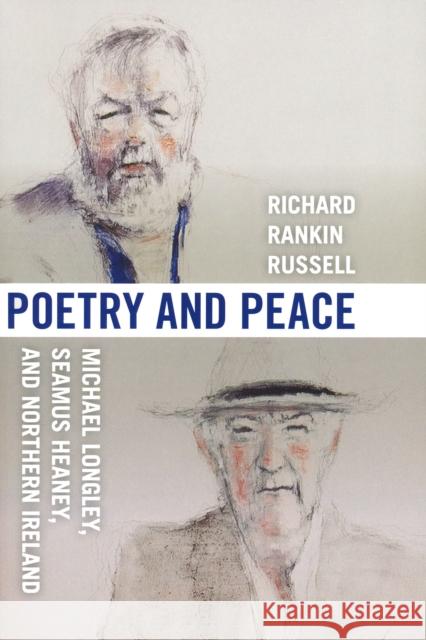Poetry & Peace: Michael Longley, Seamus Heaney, and Northern Ireland » książka
Poetry & Peace: Michael Longley, Seamus Heaney, and Northern Ireland
ISBN-13: 9780268040314 / Angielski / Miękka / 2010 / 404 str.
Poetry & Peace: Michael Longley, Seamus Heaney, and Northern Ireland
ISBN-13: 9780268040314 / Angielski / Miękka / 2010 / 404 str.
(netto: 162,26 VAT: 5%)
Najniższa cena z 30 dni: 170,03
ok. 22 dni roboczych.
Darmowa dostawa!
Michael Longley and Seamus Heaney's lives and careers have been intertwined since the 1960s, when they participated in the Belfast Group of creative writers and later edited the literary journal Northern Review. In Poetry and Peace: Michael Longley, Seamus Heaney, and Northern Ireland, Richard Rankin Russell explores Longley's and Heaney's poetic fidelity to the imagination in the midst of the war in Northern Ireland and their creation, through poetry, of a powerful cultural and sacred space. This space, Russell argues, has contributed to cultural and religious dialogue and thus helped enable reconciliation after the years of the Troubles.The first chapter examines the influence of the Belfast Group on Longley and Heaney's shared aesthetic of poetry. Successive chapters analyze major works by both poets. Russell offers close readings of poems in the context of the poets' cultural and political concerns for the province. He concludes by showing how thoroughly their poetic language has entered the cultural, educational, and political discourse of contemporary Northern Ireland as it pursues the process of peace."Richard Rankin Russell shows clearly there are strands of reconciliatory feeling, desire, and attitude that bind the poetry of Seamus Heaney and Michael Longley together. He demonstrates on the strength of this reconciliatory aesthetic how these poets ought to be considered together in critical intimacy. Along the way, Russell draws profitably on some interesting and occasionally little-known thinkers on religion and the sacred." --John Wilson Foster, University of British Columbia"Although Richard Rankin Russell is wise enough to realize that poets are not 'legislators of the world, ' whether acknowledged or unacknowledged, he argues convincingly that Seamus Heaney and Michael Longley have nurtured the process of reconciliation in war-torn Northern Ireland. By concentrating on the way they have addressed the violence that has ruined so many lives in their home country, Russell makes a significant contribution to the scholarship that surrounds them and their peers. He also teaches us how the imagination that makes art can also make peace." --Henry Hart, College of William and Mary"Russell's book takes a worthwhile and relatively unusual approach to criticism of modern poetry from Northern Ireland, by combining in-depth study of two poets, and putting these figures in the context of what he calls 'reconciliation'--that is to say, the evolving peace-process in contemporary Northern Ireland, along with the history of its long gestation through the years of the Troubles. Russell believes that art--and in this case the art is poetry--made a difference to political and cultural developments in Northern Ireland over the past thirty and more years, and that this difference was one for the better, contributing to the political developments that delivered (or at least have so far seemed to deliver) an end to violence in the Province." --Peter McDonald, Oxford University











